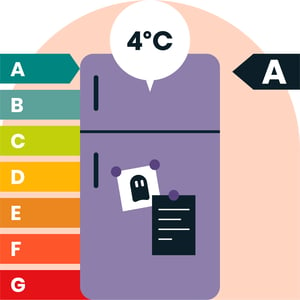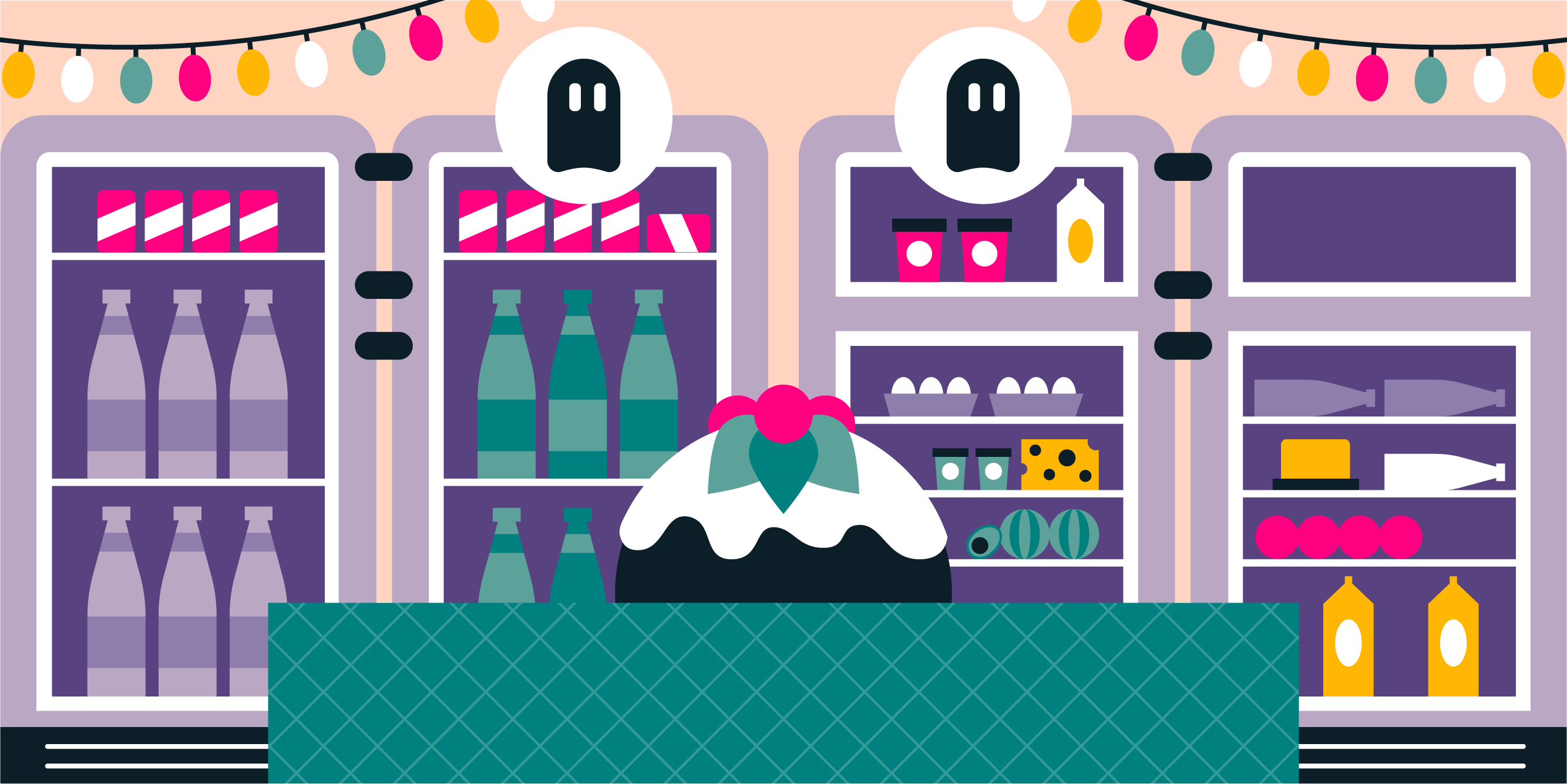Festive Chills: How Much Will Extra Fridges Cost You to Run This Christmas?
It’s that time of the year again. On come the Christmas lights, up goes the tree and decorations, and the extra drinks fridge gets filled up and plugged in. We don’t want to be a Grinch, but all of this comes at a cost.
The festive season is an already expensive time as it is, without the eye-watering energy costs. So, it’s more important than ever to consider how your household uses energy.
Wasted energy makes up 30% of the average energy bill - do something about it! Get more from your smart meter with Loop.
Hidden Energy Costs
You might not have ever thought about it, but the cost of keeping festive food and drinks treats cool can really add up. But, that doesn’t mean Christmas is cancelled! By taking a few steps to improve your energy efficiency, you can ensure you’re not needlessly wasting money on running your cooling appliances.
Firstly, ensure that any extra fridges are A-rated. Old, inefficient fridges and freezers could cost over twice as much to run.
It’s worth considering how much space you really need. Would defrosting your freezer free up some space, or is it worth spending more over the Christmas period to use an extra old, inefficient one? If you do think it’s worth it, just remember to unplug it after Christmas is over - otherwise, it could turn into £104 to run it for the year.

Fridge and Freezer Running Costs
On average, a fridge freezer costs £104 per year. But all fridge freezers aren’t created equal. An E-rated model can have an annual running cost of £110, whereas an A-rated version could cost around £46. The choice between a high or low-rated appliance could unlock lifetime savings of over £1000. To minimise running costs:
- Keep the appliances full for better efficiency - even if that means adding ice to your freezer and jugs of water to your fridge.
- Set the fridge at 5 degrees Celsius or lower, and provide proper ventilation of 10cm around the appliance.
- Regularly defrost your freezer. Letting ice build up over a few centimetres will make your freezer work harder to keep your food cool, adding to your energy costs.
Alternative Ways to Chill Festive Food and Drink
When it comes to chilling festive food and drink, there are plenty of simple and effective alternatives to plugging in an extra fridge. From making use of outdoor spaces to optimising your current appliances, here are some practical tips to help you stay prepared this Christmas.
- Rather than plugging in an extra drinks fridge, bottles and cans can be stored outside. A plastic-lidded box will keep them away from any wildlife. When overnight temperatures dip below freezing store drinks in a garage or shed to prevent freezing.
- Use cooling sleeves and rods to help keep your drinks cold. These are small and can fit into your existing freezer to use when you need to.
- If you need to buy an additional fridge or freezer, don’t just go for the cheapest option. Investing in the most energy-efficient A-rated models is key to keeping costs down. An older inefficient model could cost two or three times as much to run compared to a new A-rated model.
- Keep your fridge and freezer at the ideal temperature to improve energy efficiency. For a fridge, this is between 37-40 F (3 - 5 C), and for a freezer 0 F (-18 C).

- Consider if you really do need to bulk buy food and drink, which you then need to store in an extra fridge or freezer. Not only will thinking carefully about what you really need help to save energy, but it also helps cut food waste too.
- Maintain your fridges and freezers by keeping the exterior dust-free. This means the cooling systems are not affected and will work as efficiently as possible.
- Think about where you place your fridge and freezer. If they are near an oven or radiator, they will have to work harder! Also, make sure there is at least a 5cm gap around the appliance. Without this, the compressor, which cools down the inside of the appliance, will not release heat. This causes the fridge to heat up and work harder and longer to keep food at your desired temperature.
- Don’t forget to unplug extra fridges and freezers when they are empty after Christmas to avoid overpaying!
Steve Buckley, Head of Data Science at Loop, says:
"Christmas is an expensive time of year, and many are looking for ways to cut back on costs. Energy use tends to rise during the festive season due to colder weather, shorter days, and more time spent at home. Appliances like extra drinks fridges or chest freezers can add significantly to your bills, especially if left running when empty.
Consider whether you really need additional appliances, and be sure to unplug them after use. Old, inefficient models are particularly costly to run, and unused fridges can contribute heavily to your 'Phantom Load'. By staying mindful, you can keep energy costs in check while still enjoying the festive season."
• • •
Cut Your Energy Bill With Loop
Loop is a FREE energy-saving app that links to your smart meter, analyses your energy use and shows you easy ways to save. On average, Loop users cut their energy use by 15%! How much could you save?








